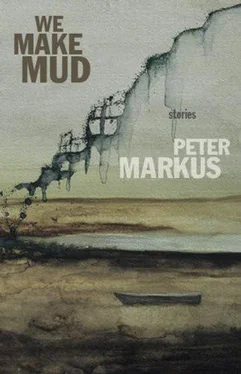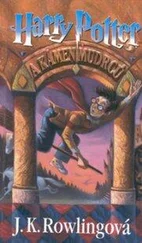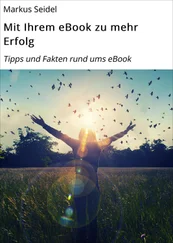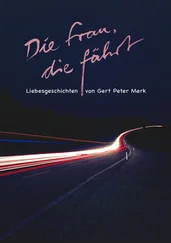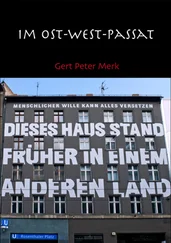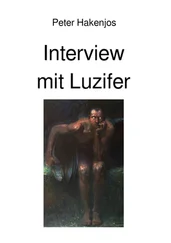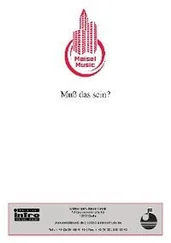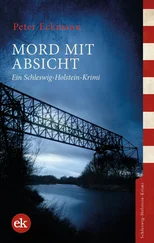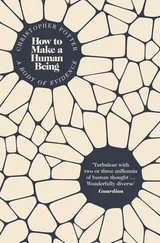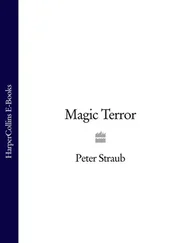Peter Markus - We Make Mud
Здесь есть возможность читать онлайн «Peter Markus - We Make Mud» весь текст электронной книги совершенно бесплатно (целиком полную версию без сокращений). В некоторых случаях можно слушать аудио, скачать через торрент в формате fb2 и присутствует краткое содержание. Год выпуска: 2011, Издательство: Dzanc Books, Жанр: Современная проза, на английском языке. Описание произведения, (предисловие) а так же отзывы посетителей доступны на портале библиотеки ЛибКат.
- Название:We Make Mud
- Автор:
- Издательство:Dzanc Books
- Жанр:
- Год:2011
- ISBN:нет данных
- Рейтинг книги:5 / 5. Голосов: 1
-
Избранное:Добавить в избранное
- Отзывы:
-
Ваша оценка:
- 100
- 1
- 2
- 3
- 4
- 5
We Make Mud: краткое содержание, описание и аннотация
Предлагаем к чтению аннотацию, описание, краткое содержание или предисловие (зависит от того, что написал сам автор книги «We Make Mud»). Если вы не нашли необходимую информацию о книге — напишите в комментариях, мы постараемся отыскать её.
We Make Mud — читать онлайн бесплатно полную книгу (весь текст) целиком
Ниже представлен текст книги, разбитый по страницам. Система сохранения места последней прочитанной страницы, позволяет с удобством читать онлайн бесплатно книгу «We Make Mud», без необходимости каждый раз заново искать на чём Вы остановились. Поставьте закладку, и сможете в любой момент перейти на страницу, на которой закончили чтение.
Интервал:
Закладка:
The Book of Mud
Tell us a story, us brothers said to Girl, the three of us sitting, down by the river, around the fire that the three of us had built. A story? Girl said. What kind of a story? A story about us, us brothers told her. But make it a story about us brothers that us brothers we don’t know. Once upon a time there were two brothers, so began Girl’s tale. But us brothers, we weren’t the best listeners. Girl could not get beyond the first line before we started cutting in on her with questions, such as: what are their names? Where do they live? What is this story going to be about? To these questions, Girl came back with these answers: that these two brothers both called each other Brother, they lived near a river, and that mud is what their story was about. But we already know about that, us brothers said. To this, Girl didn’t listen. Girl shook her girl head and then Girl started retelling her story. Once upon a time, she said, there were two brothers. And these brothers were brothers made out of mud. They were made out of mud and they didn’t even know it. How do I know? Girl asked, and the fire flared up into our eyes. I know, Girl spoke this out, before us brothers could poke in our boy voices, because I was the one who made them. I was this girl, Girl said, who always wanted a brother, so I decided, one day, to make for myself not one brother but two. I started from the bottom and worked my way up. Only the moon above me, full and white, watched as I worked the mud up, mixing in river and dirt, until what stood up along side the river’s edge on either side of my legs were these two made-out-of-mud brothers. The first words to come out of both of their mud mouths was the word mother. So that night, in a house not far from the river’s muddy edge where these made-out-of-mud brothers got made, I found a woman who was not yet a mother and in her dream, that night, I whispered to her and told her that soon she was going to become a mother. When this mother awoke in the morning, she was sick and white-of-skin and inside her woman belly was a boat being rocked to and fro on stormy seas. The brothers were sailors on that sailoring ship sailing for a world that they did not know about. Months later, they came upon a muddy river that was more mud than it was water, and here they cast out their rusty anchors toward that muddy river shore. When they set foot onto all that mud, it was, to these brothers, like walking on water. They walked up from the river’s muddy shore until they came upon the house where there lived this mother and a man too who these brothers would one day call father. Here these brothers lived and here they fished, and I watched without them seeing me, I watched them grow up, these brothers, into two muddy boys. And then one day I said to myself, it’s time these boys know from where they came. So I came out of hiding. Under a moon big and full and white, I rose up out of the river’s mud. Us brothers, when Girl said this, we leaned in even closer to this fire. This fire, it had grown bigger with each of Girl’s breaths, each of her girl sentences was a log that Girl had pitched into the fire. And now that Girl had stopped in the telling to us of this story, the fire was beginning to burn and fizzle out. Night swallowed us brothers up inside of its black-holed mouth. All the stars in the sky had fallen. The moon, it was a ghost of a fish blackened with mud. Us brothers, we got up and walked toward the river and then we kept on walking out into the dark and the muddy waters until the water was up and over our heads. In that underwater darkness below us brothers, with silver fish scales flashing in the spaces where the stars used to be, and with Girl’s moony-eyed face gazing down at us from up above us brothers’ head, we could hear the rivery gurgle of Girl’s girl voice: And they lived, these brothers did. They lived happily ever after, Girl said. And here, us brothers, us looking up, looking up at the sky that was now the river, we could see Girl’s hand closing in over the both of us — as if over a book — to hold us here in this place.
Good, Brother
When we fish the fish out of the dirty river that runs its way through this dirty river town: when we gut the fish: when we chop off the fishes’ fishy heads: when we give each fish each a name: when we don’t name the fishes Jimmy or John which is mine and my brother’s name: when we take these fishes’ chopped-off heads and then nail them, these heads, into the creosote-coated telephone pole out back in the back of our backyard: when our father calls out to us brothers: when he tells us that we are leaving this dirty river town: when our mother tells us too that we are going to be going, anywhere is the word she uses, just so long as anywhere is west of all of this mud and muddied water, away from all of this smoke and rust and steel: when to all of this all that us brothers can make our boy mouths say is but this is our house, but this is our river: when what our mother says to our buts is, we’ll find us some other house for us to call our home, a place, she tells us once more, without so much mud and without those fishy river smells: when what we say to this is, but we love all this mud and the river and the fishy river smells is what we want our mother to know: when we look to our father, our father, we turn to him at times like these because we know that he, our father, loves mud too, that he, our father, loves fish too, that he, our father, loves the river too: when our father doesn’t say anything to any of this: when our father just stands there not saying anything to any of this, not even those words but mother, or son, or boys, or fish: when, us brothers, to any and all of this, we don’t know what we are going to do about it next: when that night, us brothers, sitting in our room, we look outside through our bedroom’s window and see our fish, we see our fish-headed telephone pole, we see those fishes’ chopped-off heads — open-eyed, open-mouthed — it’s like they’re singing out to us brothers what it is that we have to do next: when we go outside and walk down to the river and the river too, the river tells us what to do too: when the river and the fish heads both, they are one voice, a river of sound, running through the both of our boy heads, telling us brothers what we’ve got to do: when that night we go outside, out into the back of the backyard: when we go into our father’s shed, where our father keeps his nuts and his bolts and screws, his buckets and ropes and ladders, and those bottles of his half filled up with whiskey: when we come back out and in our boy hands we are both of us brothers holding a hammer and a hand full of rusty, bent-back nails: when we walk ourselves and each other back to where our backyard telephone pole, it is all lit up and shining with the hammered in heads of fish: when I say to Brother, Brother, I say, you can go first: when I say to Brother, Brother, give me your hand: when Brother does like he is told: when I take Brother’s hand into my own hand: when I hold Brother’s hand up against this pole’s creosoted wood: when I tell Brother, Brother, this might sting: when I reach back with my hammering hand: when I drive the rusty nail right through Brother’s right hand: when Brother doesn’t even wince, or flinch with his body, or make with his boy mouth the sound of a brother crying out: when I say to Brother, Good, Brother: when I whisper this into his ear: when I raise back the hammer again: when I stop with the hammer: when our father, he steps out into the back of our backyard: when our father calls out to us brothers, Son: when, us brothers, we turn back away from each other, back toward the sound of our father: when we wait to hear whatever it is that our father wants us to do next: when we see that the sky down by the river, it is dark and quiet: when, us brothers, we know that, somewhere, the sun is shining: when what our father says to us then is, You boys be sure to wash up before you come back in: when us brothers, we nod with our heads, yes, yes: when we turn back to face back each other: when I raise back that hammer: when I look Brother in the eye: when I line up that rusted nail.
Интервал:
Закладка:
Похожие книги на «We Make Mud»
Представляем Вашему вниманию похожие книги на «We Make Mud» списком для выбора. Мы отобрали схожую по названию и смыслу литературу в надежде предоставить читателям больше вариантов отыскать новые, интересные, ещё непрочитанные произведения.
Обсуждение, отзывы о книге «We Make Mud» и просто собственные мнения читателей. Оставьте ваши комментарии, напишите, что Вы думаете о произведении, его смысле или главных героях. Укажите что конкретно понравилось, а что нет, и почему Вы так считаете.
